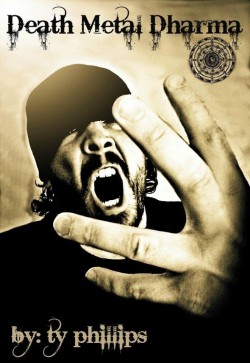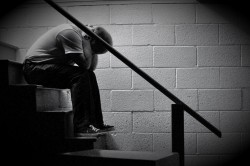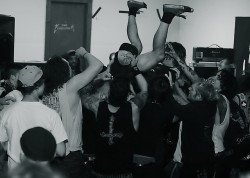“When one feels no shame in telling deliberate lies, there is also no evil that the liar will not commit.”
~ Buddha
In the last article, I addressed that there is pain in life.
Duh, that’s obvious right? Well, maybe not as much as we might think. What most people don’t know, especially in our culture (‘Muica!), is that we are the cause of a large amount of our own suffering.
This is why the Second Noble Truth that the Buddha taught was the causes of suffering. He didn’t just plop down, light a cigarette and say, “relax dude, everyone suffers,” and then call it a day. He explained why we suffer. He was explaining this in order to offer a way out of suffering. Not escapism, but an open and honest approach to reality.
So the first Noble Truth is about coming to terms with reality, not sitting in a corner rocking back and forth and saying woe is me. Why do we suffer? As I have mentioned above, suffering is largely caused by us. We do it to ourselves. It is all about attachment and grasping. We want to control things so desperately that we put a strangle hold on everything we like. If we like it, it has to be just the way it is now, forever!
Now, of course, there is suffering outside of our control: birth, death, sickness, accidents and worldwide chaos—that we cannot stop or prevent. This is the reality of life. So, coming to terms with suffering is first an acceptance of things that we cannot change.
I can’t change that we will experience heartbreak when we get dumped. I can’t change that pets don’t live as long as we do and we will have to feel their loss. But very little of our actual suffering is a byproduct of these issues. Most people don’t experience death every day, or all that often.
This doesn’t mean we just throw our hands up and say, “Hey, whatever, nothing I can do about it.”
Instead, it is coming to terms with what we are capable of changing in the moment.
As much as I wish I could fly around in some red boots and a cape saving the world (and I do struggle with this), I cannot. So I learn to deal with what I can and cannot change. What is within my own ability to affect?
The second process of accepting and coming to terms with the reality of suffering is learning how much of it we create in our own lives because of grasping, attachment, wrong view, wrong action etc. If every time someone cuts me off in traffic, I have a mini melt down in my car and start screaming and swearing and pounding my steering wheel, the only person suffering is me.
It is a product of my choice.
The person who cut me off is unaware that I am acting like a spoiled child and is not suffering from his lapse in judgment—only I am aware of this; and therefore, only I am suffering. This concept can and should be played out in each and every action and decision we make.
How much of what we do is formed as a reaction to situations that we cannot control?
This person was rude, this person didn’t hold the elevator, he made my Starbucks the wrong way, and she said I was fat, he scratched my new Thy Art is Murder CD.
What we can control however, is how we choose to react to these situations.
In point of fact, it is our constant reaction to them that is the major cause of our suffering. We can either be conscious actors in our lives, or unconscious reactors in them. Learning about and understanding suffering is not about being emo at all. It is about the process of having the courage to face real life and choosing to have a happy one. It is removing ourselves from reactionary anger and anxiety, and instead being present with ourselves, to situations we do have the ability to affect.
Our first focus on suffering isn’t about sorrow; it is about releasing our ignorance and attachment to false ideas and becoming truly positive.
Remember, every person you come into contact with is in the same boat you are. Dealing with their own confusions, doubts, fears… their own form of suffering. By acting with a positive intent, instead of reacting to everything in a negative or angry way, we can help to free ourselves and others from this constant state of suffering.
Learning how to be a key player in our own lives is the first step to putting on that set of red boots and a cape.
We Can End Our Suffering
“No one saves us but ourselves. No one can and no one may. We ourselves must walk the path.”
~ Buddha
Okay, so we now know that life can suck sometimes and what sucks even worse is we cause a lot of our own problems; but here’s the best part, the Buddha also taught as the Third Noble Truth, that we are able to end our suffering.
Like I said, he didn’t just light up and say:“Yup, it sucks, we suck,” and end it.
He also taught (and this is the primary core of his teaching) about hope and change!
Now when it comes to the third and fourth noble truth, there isn’t a lot to say. They speak for themselves. So think of them as that keying up phase in the music right before the drop beat and the best part of the song starts. Think about your favorite band that does that. (For me, it’sWhitechapel, Thy Art is Murder, Suicide Silence). It’s that part when everyone goes crazy and the pit explodes and even if you’re alone in your room, you are giving yourself a little bit of brain damage from banging your head right along with it!
This is what the third noble truth is about.
It’s about saying: I can kick it out, rev up that double bass to insane speeds and give you a mouthful of something tasty!
When the Buddha talks about ending suffering, he isn’t talking about blind escapism or ignoring reality. It isn’t a “bury your head in the sand and hope it all goes away” approach. He is saying, “Look, I actually did this; you don’t have to believe me and in fact, I would prefer you didn’t just believe me. Try it out!”
He was the world’s greatest psychologist.
He showed us exactly what reality looks like and instead of covering it up with useless rituals and beliefs that lead to no where, he said, we can change things ourselves. Human effort can make all the difference.
We don’t need to rely on priests and social structures, churches, or make believe spirits that we worship and bow to in order to escape a threat of punishment. He actually argued against those things. He was a social activist; a reformer, and a fighter for the underdog. There is a way that you and you alone can take up and apply to your life and not only will it change things for you, but your change will spread out like a wildfire. It will influence others to be better, stronger, more conscious people.
Think about the totality of what I have written so far:
We know there is suffering, we know that we unnecessarily cause a lot of our own suffering, and now that we know this, we can change it! The Buddha said, “Good or bad, everything starts from your own mind. So like your shadow following you, so too will your thoughts. It is up to you whether they are positive or negative!”
The Way Out of Suffering
“You are the community now. Be a lamp for yourselves. Be your own refuge. Seek for no other. All things must pass. Strive on diligently. Don’t give up.”
~ Buddha
Okay, we’re in the break down section now. We know it gets hinky out there. We also know we have a tendency to make it hinkier (are these even real words?) and we know that there is a way to make things less hinky!
So what the four noble truths are is the intro to the song.
They’re the initial few notes and screams before the break down and crazy deep growls that get us pumping. The eightfold path is the way out and each section of that will be given its own chapter. But that is the fourth noble truth. That is the turn around point.
We know where we are at now and the Buddha has said, “Chill man, I found the way out of this mess and I’m gonna lay it down for ya!”
The final noble truth is simply a happy awareness that we have a path we can walk in order to help ourselves.
It just gets better from here on out.
I am not saying that Buddhism and following the Eightfold Path is a magic, cure-all pill. It’s not. There are still going to be struggles and loss, pain and hurt. What the path offers us is a clear insight on how to live and act in order to better deal with those crappy moments when they come, and also how to just be a happier, more peaceful and helpful person all around.
Think of it this way; we can be the Jonas Brothers or we can be Behemoth; and for my older crowd, we can be Poison or we can be Led Zeppelin.
It’s all about choice and perspective. It’s making the solid and clear decisions, being able to accept reality and work with it gracefully, or going full on Tonya Harding because we want to have a temper tantrum. The path of Buddhism is about finding comfort in things that are always changing.
The path is in being okay with uncertainty because we are strong enough to live fully in the moment—and I am not saying YOLO! By being present and in the moment I am not saying do whatever, I am saying be aware of what you are doing.
So, let’s get started, shall we?
Love elephant and want to go steady?
Sign up for our (curated) daily and weekly newsletters!
Editor: Catherine Monkman
Photos: Author’s Own, Flickr, elephant archives













Read 2 comments and reply